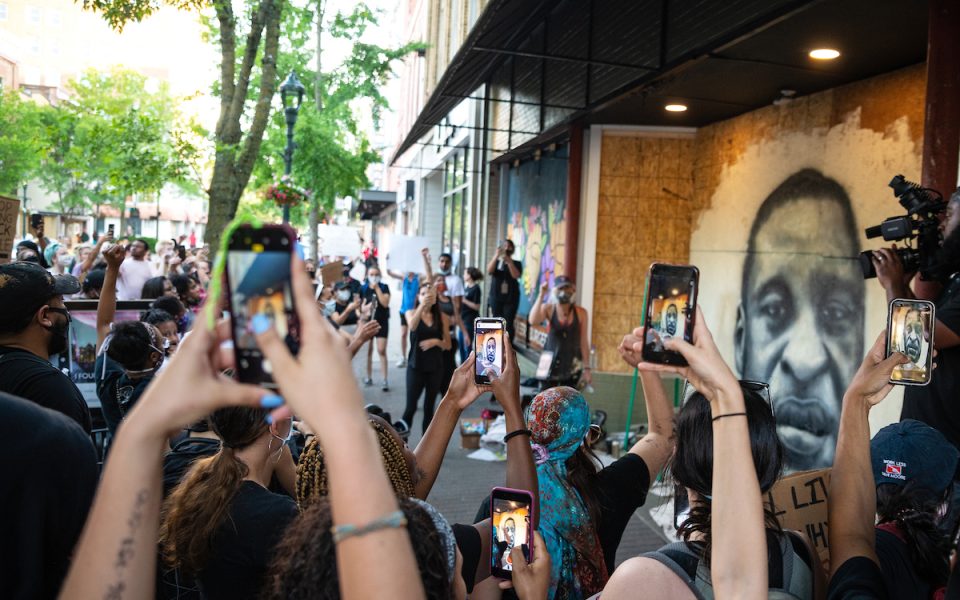The recent spate of street protests and other actions has spurred a lot of talk in journalism circles about how to write this first draft of history, both ethically and accurately. And here where the rubber meets the road, there are many points of view.
Legally, of course, newspapers are allowed to photograph, video and otherwise document every single thing that happens in public space, which includes every single person at a public protest.
But ethically, as is so often the case, it’s a different matter.
Demonstrators are worried about losing their jobs after speaking out about injustice — a very real concern in North Carolina, about getting doxed by white supremacists or law enforcement, which some might tell you are one and the same.
The price for expressing our First Amendment right has gotten a lot steeper.
Our policy is the result of serialized deliberation among Triad City Beat editorial staff, research into current practices and more than a decade of experience on the protest beat. And as always, our rules are not hard and fast — we try to look at each case of anonymity by descending into the particulars.
Exceptions abound. But since we’ve started livestreaming, we needed to make some rules. We’re not focusing on individual protestors, in footage or photographs, in favor of longer crowd shots and lower angles. We won’t put anyone on camera until we get consent, and, while broadcasting, we don’t feel taking names of most of the people we interview is necessary.
Public figures, as always, are a different story.
We’re not interested in catching people committing crimes, except for mass movements of civil actions like shutting down the highway or breaking a curfew. We’re not the police, and we don’t fight crime. That being said, we try to get everything germane to the story in front of our lenses, as best we can. We’re there to tell the story, not hijack it.
Still there are nuances. Wrinkles. Special circumstances. And if you like, I could bore you for hours with my thoughts behind our policies, the ethics of storytelling, and the importance of accurate, and timely local news — I’m an extrovert, and this isolation is cramping my style.
I’ll keep harping on that first-draft-of-history business, though, because in the end that’s the whole point.
Join the First Amendment Society, a membership that goes directly to funding TCB‘s newsroom.
We believe that reporting can save the world.
The TCB First Amendment Society recognizes the vital role of a free, unfettered press with a bundling of local experiences designed to build community, and unique engagements with our newsroom that will help you understand, and shape, local journalism’s critical role in uplifting the people in our cities.
All revenue goes directly into the newsroom as reporters’ salaries and freelance commissions.


Leave a Reply